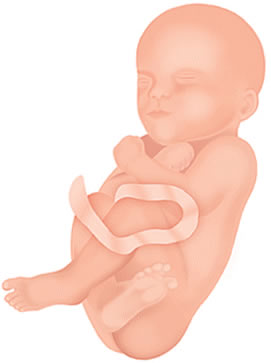 So you are now pregnant and you have read all the books you can get your hands on, viewed web sites etc, but do you know when you should be calling your doctor? Do you know when a sudden ache should make you call your doctor at 3a.m.?
Well, I guess it is often difficult to know just when you should be calling your doctor and when you shouldn’t. We can only guide you in the right direction, but my feeling is always it is better to be safe than sorry.
There are a number of other issues which come in to play as well, such as your current health status and so it is also probably a good idea to discuss a list like this with your healthcare provider.
So you are now pregnant and you have read all the books you can get your hands on, viewed web sites etc, but do you know when you should be calling your doctor? Do you know when a sudden ache should make you call your doctor at 3a.m.?
Well, I guess it is often difficult to know just when you should be calling your doctor and when you shouldn’t. We can only guide you in the right direction, but my feeling is always it is better to be safe than sorry.
There are a number of other issues which come in to play as well, such as your current health status and so it is also probably a good idea to discuss a list like this with your healthcare provider.
- Once you baby starts to move and kick regularly, and signs that he/she is moving less than usual, you should speak with your doctor about kick counts. Also read our article on Feeling Your Baby Move.
- Severe or persistent abdominal pain or tenderness.
- Vaginal bleeding or spotting.
- Any increase in vaginal discharge or a change in the type of discharge. Should it become watery, mucousy, or bloody, even if it’s only pink or blood-tinged. However, once you pass 37 weeks, an increase in mucous discharge is normal and may indicate that you’ll be going into labor soon.
- Pelvic pressure, or simply a feeling that your baby is pushing downwards, low back pain, menstrual-like cramping or abdominal pain.
- More than four contractions per hour, even if they may not be painful, before 37 weeks.
- Painful or burning urination or little or no urination.
- Persistent vomiting or any vomiting accompanied by pain or fever.
- Fever of 100F or higher.
- Visual disturbances such as double vision, blurring, dimming, flashing lights.
- Persistent or severe headaches or any headache accompanied by blurred vision, slurred speech, or numbness.
- Any swelling in your face or puffiness around your eyes, severe and sudden swelling of your feet or ankles, or a rapid weight gain, anything more than 4 pounds in a week.
- Persistent or severe leg cramp or calf pain that doesn’t ease up when you flex your ankle and point your toes toward your nose or when you walk around, or one leg being significantly more swollen than the other.
- Trauma to the abdomen.
- Fainting, frequent dizziness, a rapid heartbeat, or heart palpitations.
- Difficulty breathing, coughing up blood, or chest pain.
- Severe constipation accompanied by abdominal pain or severe diarrhea that lasts more than 24 hours.
- Persistent intense itching of your torso, arms, legs, palms, or soles or a feeling of itchiness all over your body.
Calling Your Doctor



